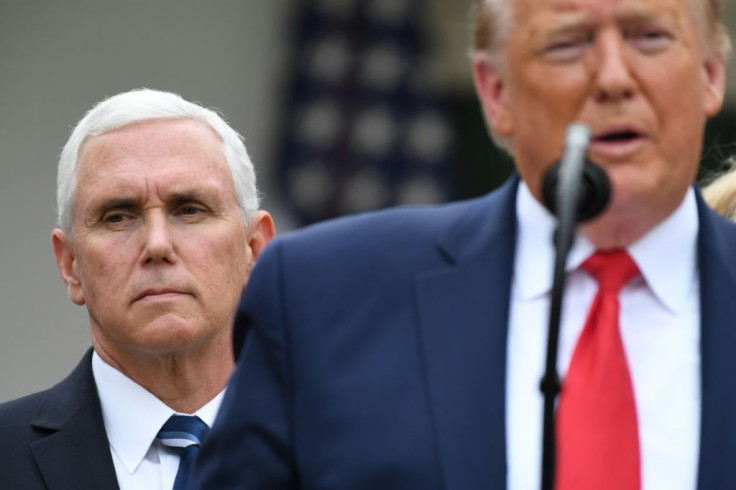Will There Be A Nationwide Coronavirus Quarantine, Curfew? Trump Remains Uncertain About Future Precautions

KEY POINTS
Americans are asked to keep gatherings to 10 people
Trump advised the nation’s governors to procure their own respirators and other medical devices
There have been nearly 4,300 confirmed cases of coronavirus in the U.S. with about five dozen deaths
President Trump said Monday no decision has been made about mandating a nationwide quarantine or curfew, but those are among the actions under consideration in the fight against the coronavirus. He said health officials are now advising that gatherings be kept to fewer than 10 people.
At a White House news conference, Trump again tried to calm the nation on a day the Dow Jones Industrial Average lost nearly 3,000 points and crude oil prices plunged below $30 a barrel as demand dried up for gasoline, diesel and jet fuel. Gov. Mike DeWine on Monday delayed Tuesday’s Ohio primary, one of four states that had been scheduled to vote.
There have been nearly 4,300 confirmed cases of coronavirus in the U.S. with about five dozen deaths. Worldwide, infections have topped 181,000 with more than 7,100 deaths.
Trump urged Americans to comply with guidelines for trying to contain the virus for the next 15 days to keep cases from spiking. In addition to keeping gatherings to 10 people, Trump urged schoolchildren to do their learning at home.
Earlier in the day, Trump advised the nation’s governors to procure their own respirators and other medical devices needed to treat those stricken with COVID-19 rather than wait for the federal government to provide them, saying it would speed up the process.
Trump, who tested negative for the virus late Friday, told reporters he’s personally being very careful about his contacts with other people. He said no decision has been made on a nationwide quarantine or curfew. Neither has there been a decision on curtailing domestic travel.
Asked whether the U.S. is facing a recession as a result of the virus, Trump said he’s not concerned, that the “stock market will take care of itself” once the spread of the virus has been stopped.
Until last Wednesday, Trump had been downplaying the severity of the virus. On Monday, he referred to it as an “invisible enemy.
“This is a bad one. This is a very bad one. It’s so contagious. It’s a record-setting kind of contagion,” he said, adding that he had read up on previous pandemics like the Spanish flu a century ago that killed as many as 50 million people.
Trump said it could be July or August before the disease is fully contained.
Dr. Anthony Fauci, director of the National Institutes of Allergy and Infectious Diseases, said because it is still unclear how widely the virus has spread, taking stringent steps to contain it now is “not an overreaction.”
“When you’re dealing with an emerging infectious disease, you are always behind where you think you are. … The best way to address it is to do something that looks like an overreaction,” Fauci said.
“They [the guidelines] will fail if people don’t adhere to them.”
Dr. Deborah Birx, who is coordinating the White House response, said every American has a role in stopping the spread of the virus.
“If you are sick, please stay home. If someone in the household is diagnosed, the entire household should quarantine,” she said, adding that people need to focus on protecting vulnerable populations like the elderly and those with underlying conditions.
Trump said the federal government has been examining sites that could serve as emergency treatment centers. “We’re doing a lot in that regard,” Trump said. But, “[we’re] hoping we don’t need that surge capacity.”
Trump said the Senate is working on the House emergency aid bill that passed Friday to enhance it. The bill provided for paid sick leave, enhanced unemployment benefits and aid to small businesses. He also said the administration plans to provide aid to the airline industry, which asked for $50 billion to offset losses resulting from reduced travel as a result of the virus.
© Copyright IBTimes 2025. All rights reserved.






















